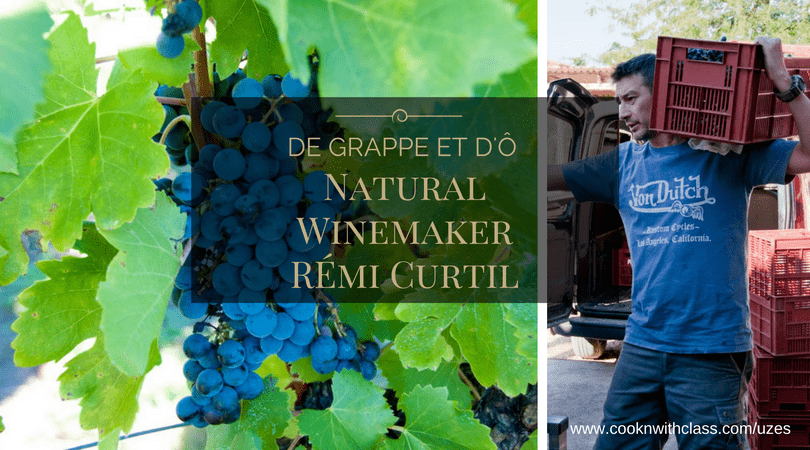
Natural Winemakers – De Grappes et d’Ô

Have you ever tasted Natural wine? Do you even know what Natural wine is? I didn’t, at least not really though I had tasted it before without actually knowing it. So what is it and how is is different from organic wine? I turned to the internet to find the definition and found this:
Uzès and the surrounding cities and villages that make up “Le Pays d’Uzès” are big on organic produce. Though Languedoc-Roussillon is one of the top leading regions in France for organic farming it is far from being 100% organic. The region is doing all it can to encourage those who are strong of character and passion to establish themselves as organic producers – their words not mine. It is not for everyone even if, for some, it seems as if it should be.
“De Grappes & D’Ô – Production de vins vivants”
In honor of the grape harvest that started in late August into September, I sat with natural wine producer, Rémi Curtil of De Grappes & d’Ô, a former Parisian sommelier come vigneron, who now calls le Pays d’Uzès home. Rémi’s approach to wine is an interesting one and well worth exploring, though he himself admits that it may not be for everyone. His tag line says it all “Production de vins vivants” (Producer of lively wines or wines with life). So who wouldn’t want wine with life?
I’ve always wanted to see the grape harvesting process and being surrounded by wineries and vines, you’d think I would have seen my fair share by now. When I asked Rémi if I could tag along on one of his harvesting days, I was happy to learn that a Grenache harvest was meant to take place (weather permitting), by hand not too far from where I live.
It was a beautiful sunny Sunday morning and though I did not have the courage to venture out at 7:30 – I have a 22 month old son after all and sleep is precious to me, I did catch them still in action some hours later.
A bit about our vigneron:
Rémi Curtil has been in the wine industry in one form or another since his teens. “My first vintage alone came out in 2007. Before that I was a vigneron for other vineyards and even before that I was a sommelier in gastronomic restaurants in Paris,” he tells me. This led me to ask how he went from being a sommelier to making his own wine.
“I was interested in wine even in high school and I initially started my studies with the intention of making wine. For financial reason, I stopped and switched to studying to be a sommelier but wine has always been my passion,” he says.
After a few years as a sommelier, Rémi returned to school in Burgundy to finish what he had started years before to become a winemaker. “I worked as an agricultural employee, a wine seller and finally I started my own winery. It was a series of wonderful surprises and encounters that led me here. Without these encounters I could just have easily returned to Paris, where I grew up, and continued being a sommelier. I have now been in the south of France for 20 years.” What a beautiful story!
“It was a series of wonderful surprises and encounters that led me here.”
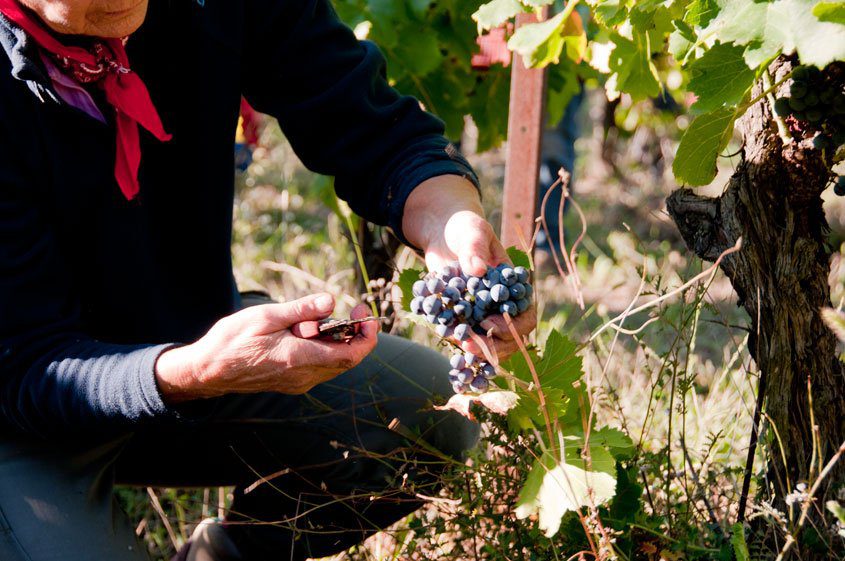 The grapes are carefully inspected at the harvest by hand.
The grapes are carefully inspected at the harvest by hand.
Rémi’s domain, Grappes & d’Ô, covers 7.5 hectares of land. For his Duché d’Uzès he uses red grapes, Syrah & Grenache which grow in a clay-limestone earth. White grape varieties that you will find in his wines include Viognier, Grenache blanc & Vermontino.
With his grapes, Rémi certainly does surprise, so if you have ever been curious about Natural wines or never even heard of it but want to know more, read on and discover the world of Rémi Curtil and de Grappes & d’Ô.
Do you work with indigenous yeasts?
Yes. [I don’t use] “Levures sélectionnés” as they are called in French are yeasts that are often (not always), precursors of aromas. If you want your wine to taste more or less like grapefruit in the case of a rosé for example or pineapple for a white wine, you can introduce these yeasts that will allow for those flavors to be more apparent. There are natural yeasts on the grapes that are part of the terroir – where the grapes grow and they bring their own aromas and flavors. For me it is important to retransmit these flavors to the wine [rather than mask or alter them].
I discovered these indigenous yeasts little by little each time I made wine. I know what flavor they will bring to my wine.
Do you use sulfur or sulfates during the harvest, in the wine cellar or in the bottling process or during all three stages?
Generally I do not use sulfur at all. If I have a real problem with grapes that I have harvested, as was the case in 2014 when I brought in grenache that unfortunately had some rot, [I may use sulfur]. Due to the weather, the harvest was quite difficult. If I have a problem like this, I will use sulfur – I’m not completely mad. I put sulfur because I know that it will protect my harvest from a deviation or from a bad taste. But most of the time, I am able avoid it, particularly with my reds and even with my white and rosé [which are more fragile]. I have vintages that have no sulfur at all from the harvesting to the bottling. But I observe my wine, and depending on its state during the vinification, I could decide then or not to add sulfur if needed at the bottling stage, so that the wine can survive the bottling [without major transformations].
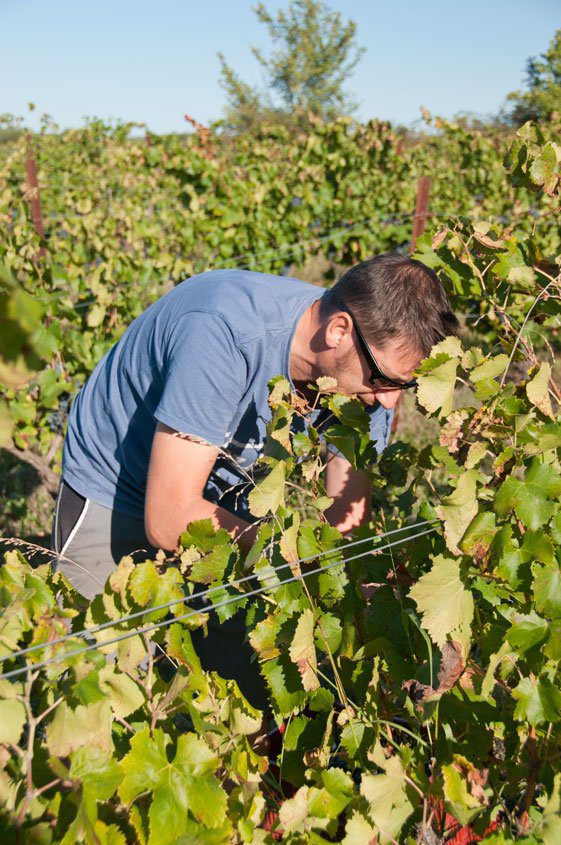
You may wonder if the way a natural wine producer works his land and his vines would differ greatly even from other organic producers like Deleuze-Rochetin or at least I certainly did. Rémi explains to me that he does not at all alter the state of his vines chemically. “The only thing I add is compost that I make myself. I try to put back what I have taken. So all the parts of the plant that we remove, I bring back to the vines except for the grape pulp which we are obligated to hand over to the state so they can make alcohol from it. I keep everything else from the vine and I turn it into compost. I let the weeds and plants that are in place already remain in place.”
So how then do you treat your vines to ward off illnesses?
“I use Sulfur and cooper only.” I am a bit confused at this point about sulfur and sulfates so Rémi explains to me that, sulfur and sulfates are essentially the same however it is a sulfur in its powder form that allows us to fight illnesses that can affect the vines. Sulfates are a liquid composition that we can add to the wine to preserve it or fix its state.
What made you decide to work in Organic wines?
It seemed to me to be the most honest way to be a producer. I wanted to leave a clean planet for my kids. I don’t want to leave them a polluted earth. For me, commercial agriculture and even agriculture “raisonné” (where we use chemicals reasonably), are all a big lie. I’m making a generalization because of course there are farmers who use chemicals and work very well and there are organic farmers who do a poor job but for me organic farming was the only option. It was either that or no farming at all.
“Each grape is at its best in the area from which it originates.”
It has come to my attention that the Languedoc-Roussillon region of France is the largest wine producing region but it has mainly, in the past, been for national and local consumption so it is not a wine region that you hear about a lot overseas.
What would you say is the biggest difference between the wines of the Languedoc-Roussillon from other regions of France?
The types of grapes we have here. We have cabernet but they will not have the same expression as they would in Bordeaux. Each grape is at its best in the area from which it originates. If we try to plant pinot noir or chardonnay, we end up with a wine that is very heavy. The Syrah (shiraz) has a wonderful expression here. If we plant them up north, they would be completely different.
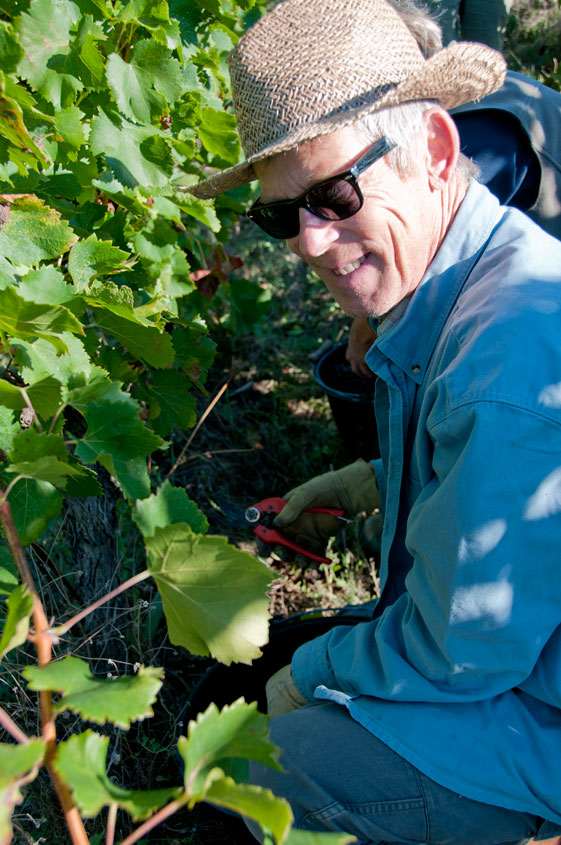
Let’s talk about a rather controversial subject – climate change. At this stage there are some wine producers who, with concern about what’s to come, have been trying to develop more resistant grape varieties. Is this something that you are personally concerned about? Are you doing anything now that could answer these concerns?
They say that with climate change we should actually be planting grapes that originate from climates even further south than ours allowing us to make a wine that does not contain too much alcohol.
I have not been here long enough to say that there has been a big change in the region’s climate but yes, it does concern me. I think about my carbon footprint and the fossil fuels we use. It all goes together. I’m in my 40s and I have a 9 year old daughter so I ponder over what sort of planet we will leave to the future generations. It worries me, yes, so I try to think about how I consume, though I’m not certain what direct impact that will have on a global scale. It is an industrial problem rather than an individual problem. The debate is a long one and it won’t be you or me who can directly impact climate change but there is a saying that goes, “Le très peu que l’on peut faire.” – Every little bit helps.
What do you think about the 2015 grape harvest?
It is a year that is looking good particularly for certain vines that could be lacking in pizzaz. We had a dry spell which meant that the grapes were lacking water and didn’t grow as fast as they could have and then we suddenly got a lot of rain just when they needed it most, just when we started to panic. It is a series of events that led us up to this point but it is chance. We have no control over the weather. We have been lucky up till the harvest season and we brought in healthy grapes which were not under attack. And we have a good quantity of quality grapes. These elements together could indeed mark a great year. But now we have to make wine. It is a bit early to say it will be an exceptional year. But it does look like it will be a wonderful year in reds and whites and personally for me almost a little too concentrated for rosé wines. Of course that is just my opinion.
“You have to want to be surprised, he says, when we drink wine we have to step outside of classic pre-conceived notions.”
— Rémi Curtil
About what he would say to someone considering natural wines for the first time, he adds: “You have to want to be surprised, he says, when we drink wine we have to step outside of classic pre-conceived notions. It is just like with cooking, you have to want to be taken by surprise. The day that the first chefs started molecular cuisine – that surprised a lot of people but people went with it. Natural wine is a bit like that, you need to want to step outside classic tastes and really taste something else. It is still wine but it is not going to taste like other wines we have tasted before.”
To end our interview I asked him to offer us some of his favorite food and wine pairings?
“I like my Grenache with a tomato salad, olive oil and fresh herbs” All local & organic of course “or just a goat cheese,”he offers. Or a wonderful bottle of “Jour de fête” from the winery Malaïgue [another organic wine producer in the area], with a lamb tagine with prunes and spices.
Where to find Rémi’s Natural wines:
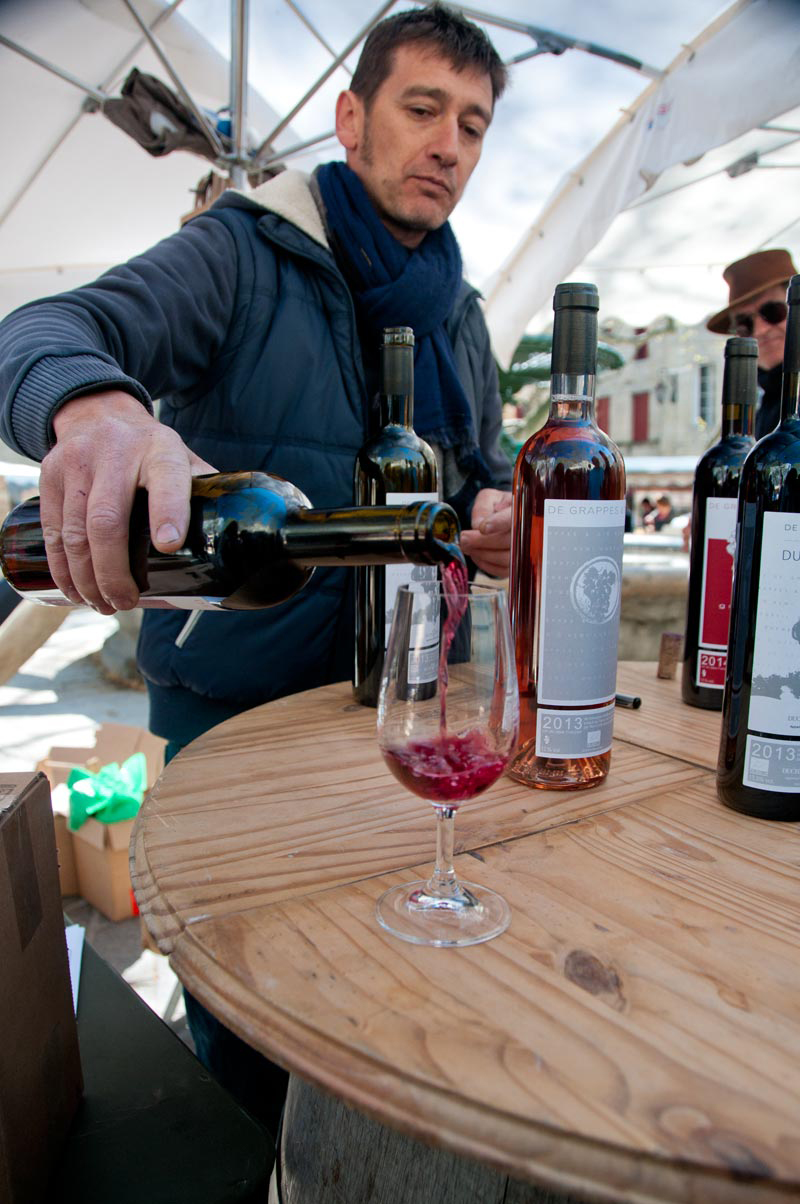
You can find the Natural Wines of de Grappes et d’Ô at various restaurants in Uzès from Ma Cantine to La Maison d’Uzès. At the La Cave d’Uzès (across from the Haribo museum), at the Malaïgue boutique in Uzès and as far as Liege and Dinant in Belgium. You can also find Rémi every Wednesday at the Uzès producers’ market as well as at his own cellar in Blauzac every day except Sunday), from 5PM to 7PM in rue Neuve.
His site
*Source: Wikipedia
Wine is a big part of our French cooking classes. We enjoy locally sourced wines throughout the meal. Join us for one of our convivial, foodie learning experiences open to all levels. View our classes.

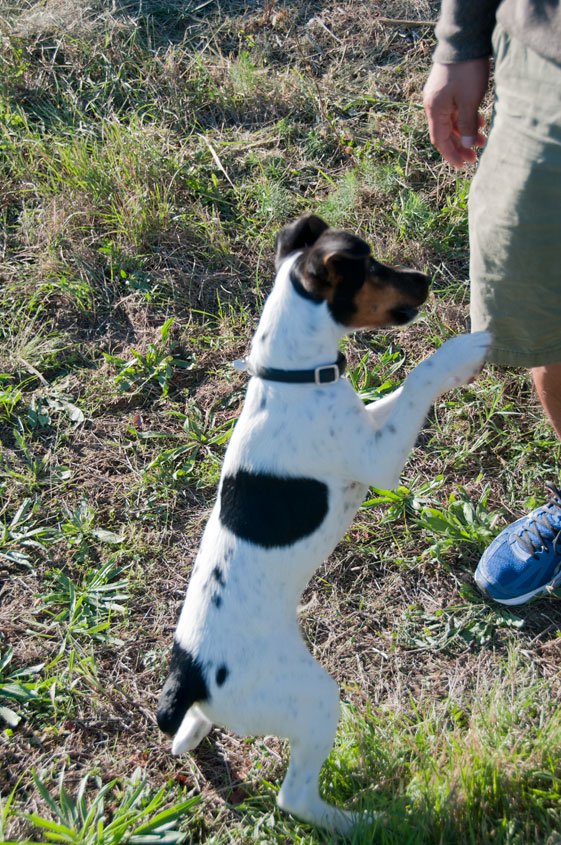
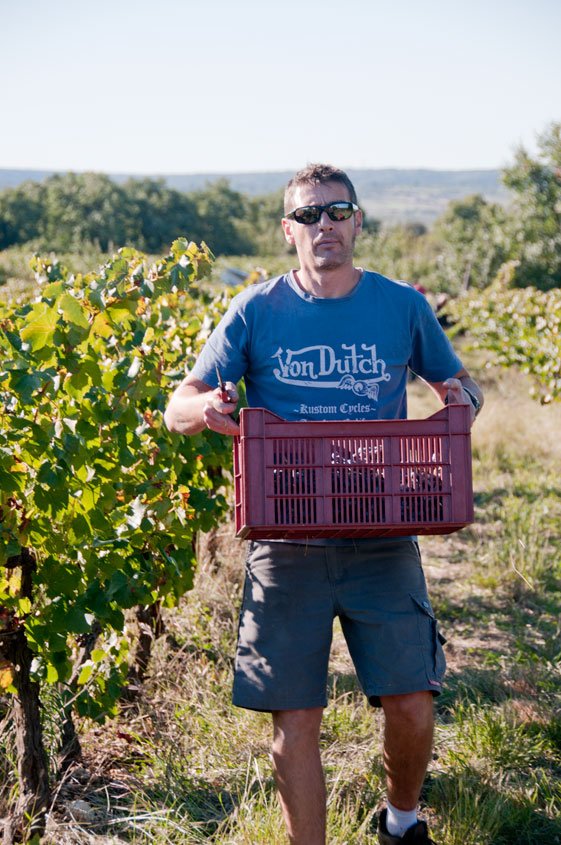
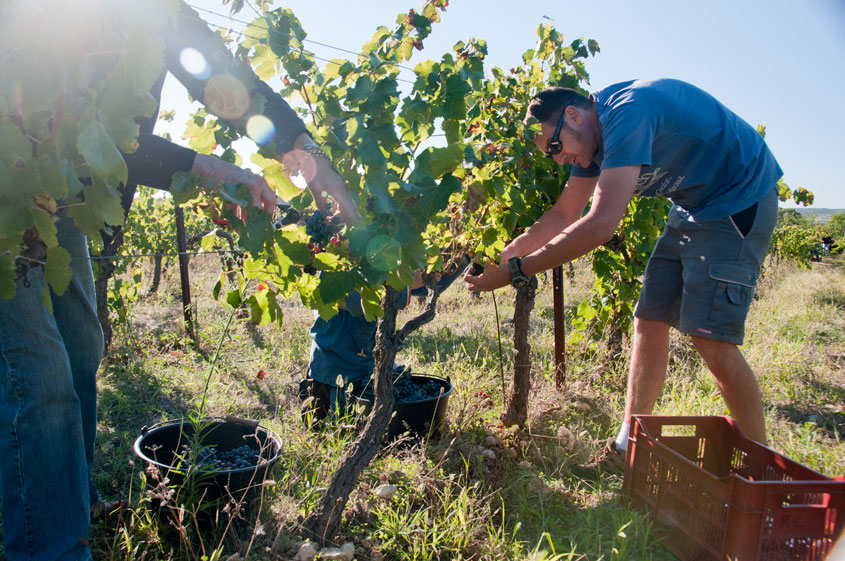
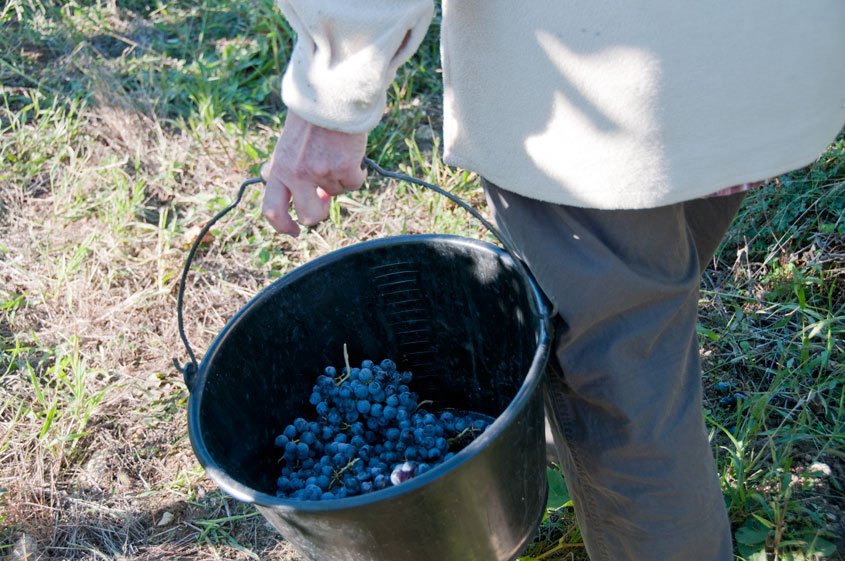
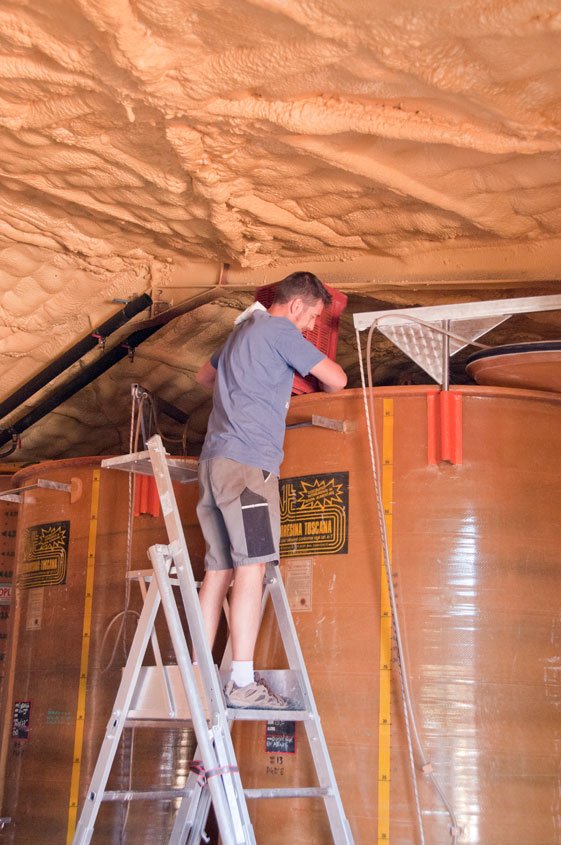

Very interesting ! Learned something today. I will try his wine now 😀
Glad to have been a part of your continued eduction. :0)